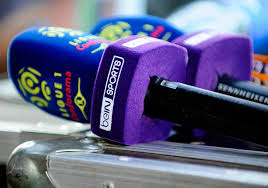June 23 – BeIN Sports went dark on the broadcast of the return of Serie A from the coronavirus shutdown this weekend as tensions mount over the league’s relationship with Saudi Arabia and the kingdom’s support of pirate channel beoutQ.
BeIN Sports holds the rights to the Italian top flight that resumed on Saturday with Torino hosting Parma, but fans in the 35 territories where beIN Sports holds the rights were met by a blue screen.
In a statement, a beIN spokesperson said: “No Serie A matches are being broadcast on beIN Sports’ entire global network. It would not be appropriate to comment further, other than to say our legal and public position has been consistent and well-documented for three years.”
The Qatari pay-television channel reckons it makes up more than half of Serie A’s international broadcast revenue with coverage across the Middle East and Africa with its main channel offering, as well as via its channels in France, Turkey and Indonesia.
But the industrial scale of the beoutQ signal piracy of football rights in particular, has undermined the beIN business and devalued the rights that beIN bought exclusively.
This sent a shockwave through the whole of the broadcast sports rights business that was already facing the challenges of increased content on OTT and streaming services and the destabilising effect this could have on broadcast rights fees, particularly for football. BeIN chief executive Yousef Al-Obaidly has said that, as a result of beoutQ’s activities, the company would no longer consider all sporting media rights “non-exclusive”, implying that rights holders could expect significant drops in licensing fees.
Last week, the World Trade Organisation largely ruled in favour of beIN, stating that the Saudi authorities had done nothing to prevent piracy, but instead promoted beoutQ activities. The TV rights dispute is but a part of the Saudi-led blockade against Qatar over claims the Emirate supported terrorism, an allegation Qatar has always categorically denied.
BeIN Sports’s relationship with Serie A become particularly fraught as the Italian league’s ties to Saudi Arabia have grown. Last year, Saudi Arabia controversially staged the Italian Super Cup despite the broadcaster’s warning that the Italians were effectively rewarding a country that is stealing its income, and that there would be a knock-on effect for Serie A. That effectively happened with the broadcast blackout last weekend.
At home, beIN Sports has also felt the pressure. Last year, the broadcaster dismissed 300 people at its headquarters in Doha and this month another round of cuts has followed.
Contact the writer of this story, Samindra Kunti, at moc.l1734883219labto1734883219ofdlr1734883219owedi1734883219sni@o1734883219fni1734883219

